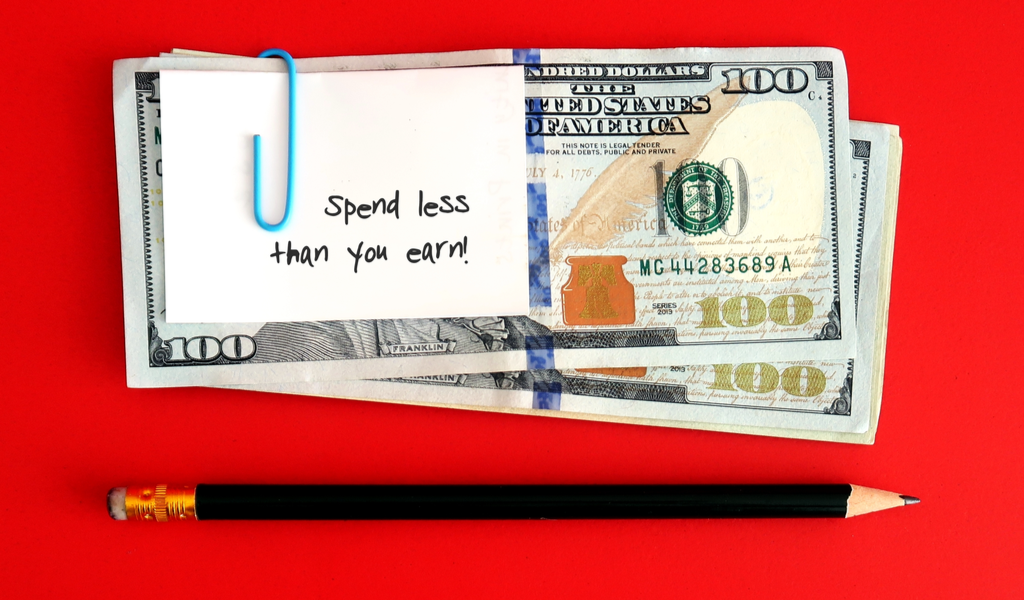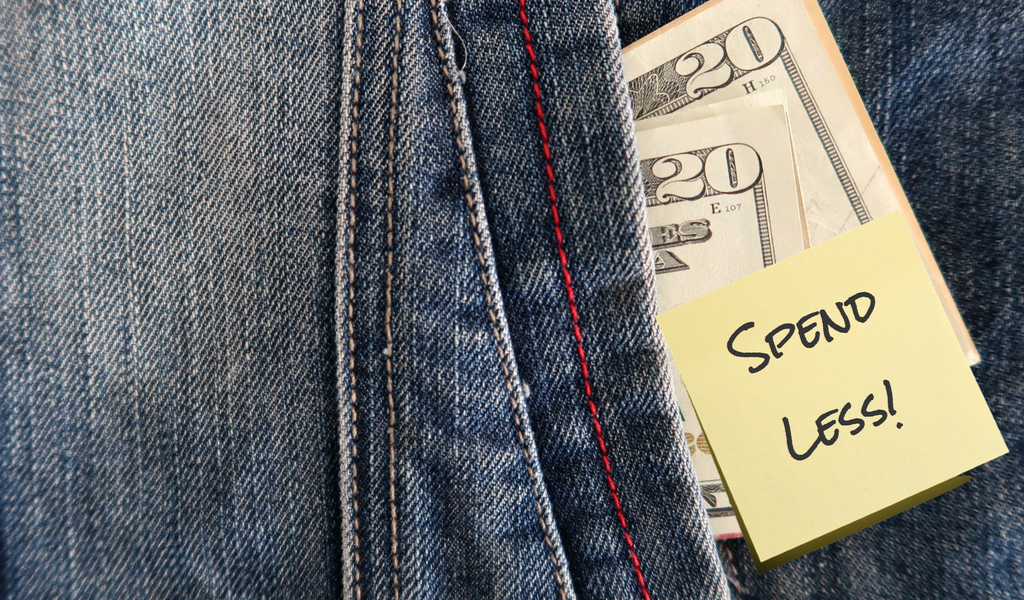Interested in frugal living? Why wouldn’t you be! Here are 8 tips that can help you along your journey to effective money management!

Create a Budget
This is probably something that you’ve been told time and time again, but it cannot be said enough: you need a budget! It is the number one step to getting your finances in order, whether it be money management, saving, investing, or whatever else it may be. This is important because a budget helps you understand how much money you have coming in, how much is going out, and where the potential “leaks” are.
You can use an app, spreadsheet, budget planner, or just a good old notebook and pen, but what matters is that you do it today and do not put it off.
Be Smart About Your Banking Choices
Paying for banking is definitely an unnecessary expense in today’s day and age. You can find free banking options online with a lot of attractive offers. One such offer is a cashback credit card, which can help you earn back a good amount of money that you spend every month. However, it is important that you pay them off every month to avoid interest fees.
At the same time, you should always check your bills and credit card statements before paying them off. Billing errors, especially in the medical field, are pretty common – in fact, about 30%-80% contain errors! So, it wouldn’t hurt to give your bill a once-over before making the payment.
Avoid Impulse Purchases
According to a recent poll by Slickdeals in 2020, the Average American admits to spending roughly $183 a month on impulse purchases. However, it is much more devastating in the long run as customers spend about $5,400 a year on impulse buys. Ironically, the main reason people said why they made an impulse purchase is to save money!
What’s worse is that most impulse purchases are made using credit cards. This is why it’s always a good idea to use only cash when you are going shopping. Make a list of everything you intend to buy, calculate how much everything would cost, and take along only enough money to cover them. Even if you have extra money on hand, psychologically, people find it harder to part with cash than they do with money on a card.
You could also institute a self-imposed cooling-off period of 10-30 days before making a large purchase. This will give you some time to think it through and properly evaluate whether it is worth spending on.
Review, Return and Cancel
Let’s face it, we all have those impulse purchases lying around with the tags still on. If the return window hasn’t expired yet, take them back! Most stores allow returns even if you don’t have the receipt, although you may have to settle for a gift card instead of cash.
You should also take some time every few months to review your subscriptions and cancel those that you do not intend to use anymore. You may be racking up on fees after that “free trial” you signed up for ran out and you forgot to cancel it. Or you may still be paying for a service you no longer use. You can even use a website like Truebill which will go through your recurring expenses and help you identify and cancel unwanted monthly subscriptions.
Negotiate, Negotiate, Negotiate
You may be losing out on a good deal because you feel too shy to negotiate, so buck up and talk to the seller because it never hurts to ask. You can lower the price of pretty much anything (even your rent) with a bit of haggling. Lots of stores will also agree to price match, and this can help you save a lot of dough especially on big-ticket items like electronics, furniture, and cars.
Even companies who have subscription services are often willing to give you a good deal in return for your promise to stay on, so it’s worth spending an afternoon calling around and (respectfully) threatening to cancel services.

Do It Yourself
You can save yourself a lot of money by learning to do things yourself, and the good news is that you can learn to do pretty much anything with the help of the internet. You can DIY anything from personal care and pet grooming to home improvement. There are a plethora of free online resources, or if you can take courses online for very affordable prices through services like Udemy, Skillshare, Coursera, etc. But first, make sure to check YouTube because there’s probably a video for it!
Trying to repair a broken item before rushing to buy a new one is also a good way to save some dough. Again, you can check YouTube or other online forums for help. A little bit of regular maintenance can also go a long way in preventing something from breaking down in the first place. For instance, regular tune-ups and oil changes can extend the life of your car.
Automate Bills and Savings
It is important that you pay your bills on time, but it can be overwhelming to keep track of all of them every month. This is probably why at least 54% of American households have reported having to make at least one late payment a year. In 2019, the average American spent an additional $577 in overdraft and late fees – and this could have been completely avoided!
The best way to ensure that you do not forget to pay your bills is to automate them. This way your bank automatically pays recurring bills and you do not have to worry about them. Just make sure to regularly review your bank or credit card statement for overages.
Similarly, you should also automate your savings. According to studies, saving first helps you save more. So, it makes sense to set up an automatic deposit to your savings when your paycheck arrives. You can also save more by using a service like Acorns which is a micro-investing app that automatically invests your spare change by rounding up to the nearest dollar.
Not Everything You Buy Has to be Brand New
In fact, a secondhand item that has been gently used or refurbished can cost you way less and be just as useful as a brand-new item. It’s best to stick to name brand items when shopping for used items and make sure that it is in good condition.
You can also get pretty good deals off the clearance rack at any store, so make sure to give it a perusal first. Discount racks are also a good place to shop for low prices – and you can find them at pretty much any store from electronics to your local grocery store.
Another secondhand item you can save money on is unused gift cards. There are websites dedicated to reselling unused gift cards such as giftcards.com and raise.com. The good thing about them is that you can get yourself a pretty nice discount, sometimes even up to 35%!
You should also keep an eye out for gift card discounts around the holiday time as most retailers tend to offer big promotions. However, make sure you only buy gift cards for stores you regularly purchase at because they come with expiry dates and you don’t want it to be a waste of money.



